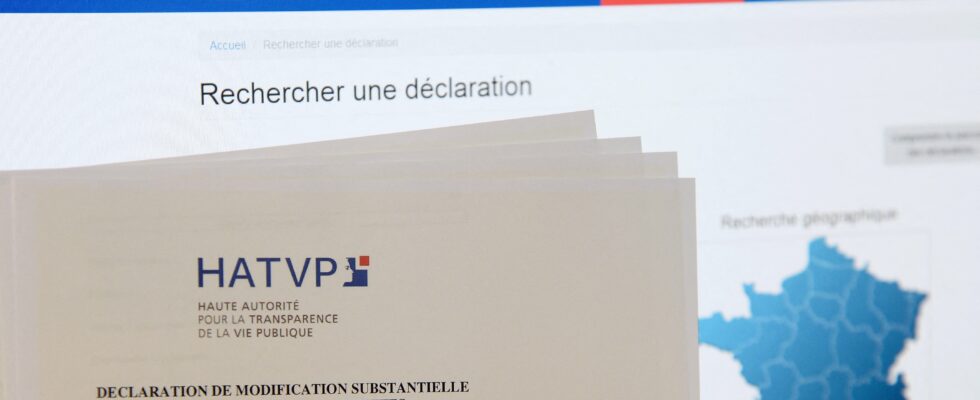“We are in a state governed by the rule of law, so everyone must be able to be controlled.” This is how Didier Migaud, the president of the High Authority for Transparency in Public Life (HATVP), summed up his mission at the time of celebrating the 10th anniversary of the institution, created in an emergency after the Cahuzac affair. The former first president of the Court of Auditors is not exempt from the control rules laid down by his institution: on the authority’s website (10 million euros annual budget, 75 staff), when you type in his name, his declarations of assets and interests (from December 2023) appear, as do those of ministers and many other political leaders. This is how we learn – but do we really want to know? – that Didier Migaud, 72, has (among other assets) two Parisian apartments worth 1,296,000 euros, a Mini Countryman Cooper (29,900 euros), or shares in a civil property company (161,280 euros)…
The idea, at first, is rather healthy: to avoid new Cahuzac or Thévenoud affairs (named after the Secretary of State who “forgot” to declare his taxes, sentenced to a one-year suspended prison sentence), it is a question of making the political world more virtuous, by imposing transparency and ethics. The HATVP is working towards this and does not do things by halves: last year, it received 8,816 declarations of interests, carried out 3,536 checks, and issued 438 opinions on mobility projects between the public and private sectors. An energy that unfortunately often borders on zeal, as the institution is driven by reflexes of ultra-prudence, or guided by an anti-“private sector” ideology, which ends up annoying ministers or government collaborators.
“For me, it would be easier to get recruited abroad by the Chinese company Huawei than to join Orange,” laments a former very powerful chief of staff of the outgoing government, blocked on all sides by fear of conflicts of interest.
Triple punishment for politicians
With the HATVP, it is indeed a triple punishment for politicians. Firstly, they are subject to the bureaucratic obligations imposed by the High Authority, and must write declarations of interests and assets at every turn. “I must have made about twenty of them,” confided an outgoing minister, exasperated by this administrative redundancy, which ended up creating a feeling of suspicion. Secondly, political staff must accept a certain amount of exhibitionism, seeing their declarations of interests and assets displayed in the press. A voyeurism that is hardly likely to restore trust between citizens and the political world.
Finally, and this is probably the most serious, the HATVP multiplies the obstacles to slow down departures to the private sector. It does its job, reply the purists. But this hypertrophy of virtue, which maintains the permanent suspicion of conflicts of interest, does not encourage well-made minds to try the governmental experience. The HATVP is undoubtedly necessary, but it has transformed itself into a slapping machine. Excessively virtuous, it has become a talent killer.
.
